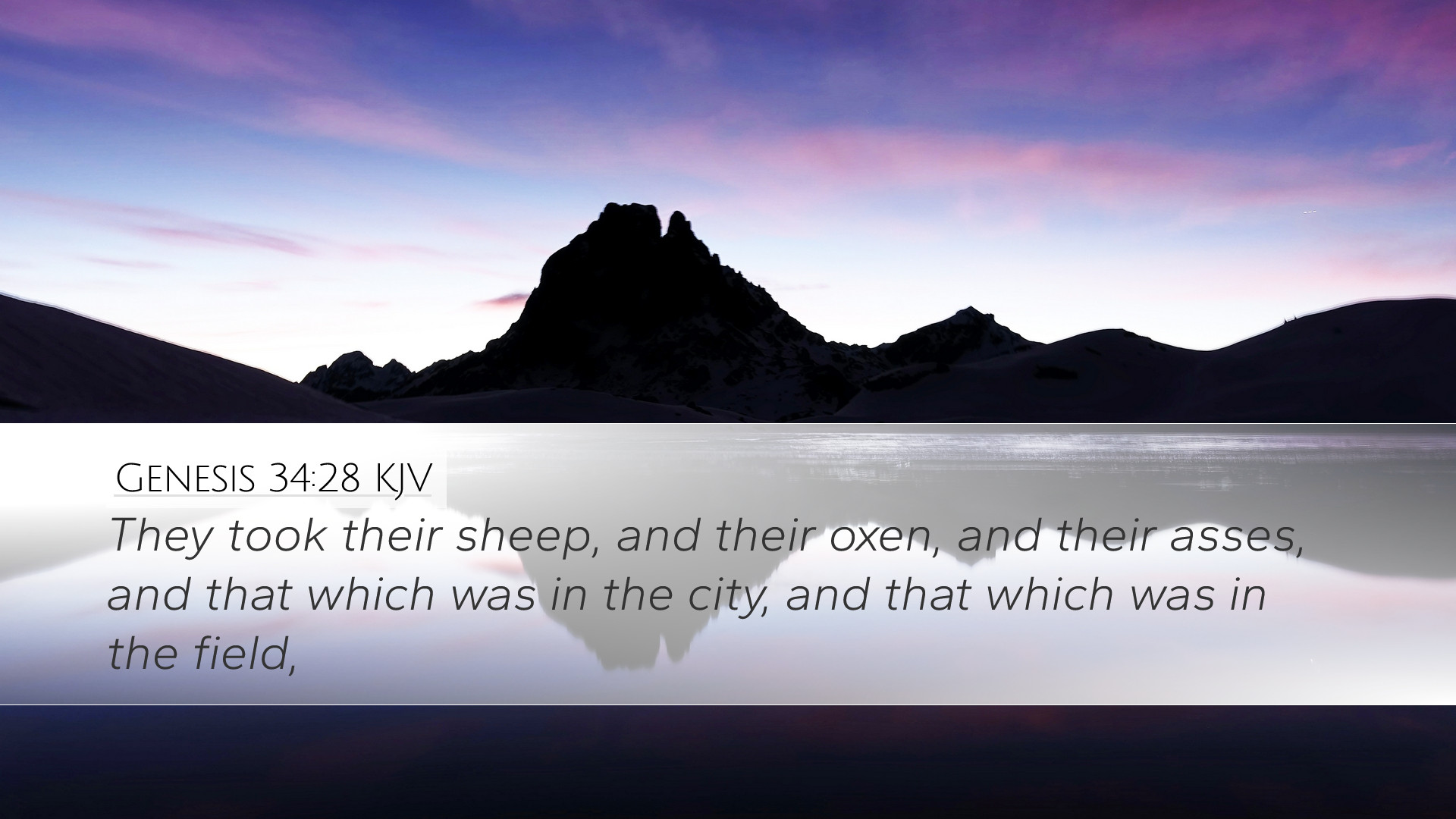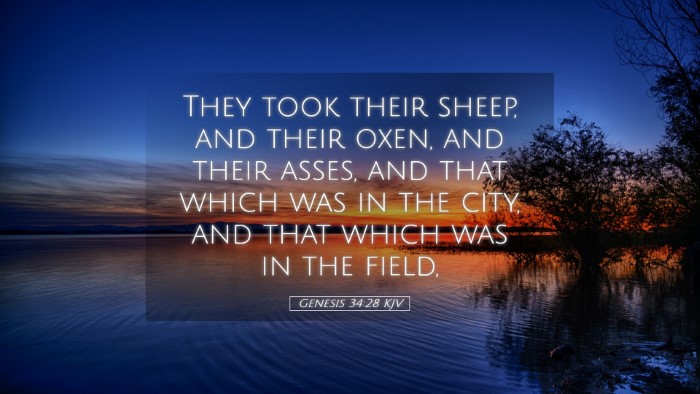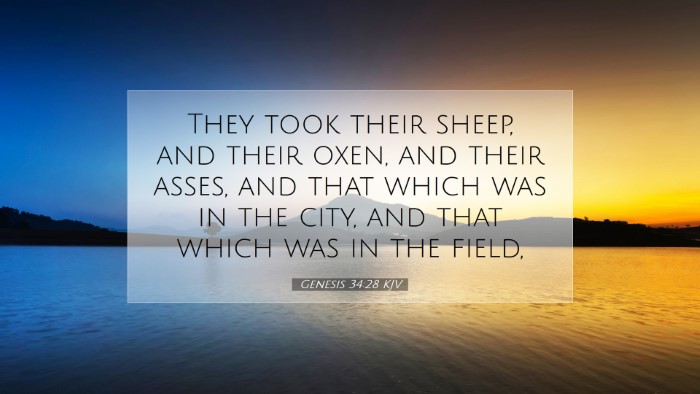Commentary on Genesis 34:28
Genesis 34:28 is a pivotal verse in the narrative of Jacob's family, dealing with themes of violence, justice, and the consequences of moral failures. This verse captures the aftermath of the tragic events surrounding the rape of Dinah, Jacob's daughter, and the subsequent revenge taken by her brothers, Simeon and Levi. Below is a synthesized commentary drawing from esteemed public domain sources, namely Matthew Henry, Albert Barnes, and Adam Clarke.
Textual Context
The events leading up to Genesis 34:28 detail the defilement of Dinah by Shechem, the son of Hamor the Hivite. The grievous act leads to an emotional and violent response from her brothers. They devise a plan under the guise of reconciliation, ultimately culminating in the slaughter of the men of Shechem.
The Significance of Justice and Vengeance
Matthew Henry takes a profound look at the motivations driving Simeon and Levi's actions. They were not merely avenging their sister's honor; they were also delivering justice against a serious moral transgression. Henry explains that their response reflects both the cultural obligations of brothers and the deep-seated desire for retribution that young men often feel when their family members are wronged.
Henry notes, "There can be no lasting satisfaction in revenge; it often breeds more conflict and draws others into the turmoil, as seen in the case of Jacob’s sheep and livestock being at risk as the brothers engage in violence." The commentary thus posits that although they sought to vindicate Dinah's honor, their actions would have repercussions that affected their entire family.
Moral Implications
Albert Barnes emphasizes the moral dilemma presented in this passage. He underscores that the brothers' retribution was not solely a response to a crime but an act that spirals into further wrongdoing. Barnes remarks on the danger of taking justice into one's hands and the inevitable cycle of sin that follows such choices:
- Sin Begets Sin: The violent act by Dinah's brothers invites the potential for ongoing conflict with surrounding communities.
- Reflection of Values: How one reacts to perceived injustice reflects their character, suggesting the necessity for righteous anger rather than impulsive violence.
The Consequences of Actions
Adam Clarke provides an insightful examination of the immediate and distant consequences of the actions taken by Simeon and Levi. Clarke elaborates on Jacob's later response, showing a father's concern not just for his daughter but for the safety and reputation of his household:
- Immediate Consequences: The death of the Shechemites results in a reaction from surrounding tribes, who may seek vengeance for the massacre.
- Distant Repercussions: Jacob fears retaliation from other nations, showcasing the dangers of familial revenge spilling over into broader societal conflict.
Divine Perspective
It could be argued, as Clarke suggests, that the violence is a reflection of humanity's fallen state. The narrative illustrates the innate struggles between justice and mercy, vengeance and forgiveness. There is a sense that God, while not explicitly invoked in this passage, is observing the moral failings of His chosen people:
- The Need for God’s Guidance: The absence of seeking God’s guidance illustrates how decisions made in the absence of divine wisdom can lead to dire consequences.
- Redemptive Potential: Despite the sinful acts, the overarching narrative of Genesis is one of grace and redemption, hinting that through faith and repentance, there is hope for restoration.
Lessons for Today’s Believers
In reflecting on Genesis 34:28, pastors, students, theologians, and scholars can derive critical lessons for contemporary life:
- Responding to Injustice: Believers are called to navigate their responses to injustice with wisdom, ensuring that their actions align with God's justice rather than mere human vengeance.
- Importance of Family Unity: The narrative serves as a sobering reminder about the dangers of allowing family conflicts to escalate into broader issues, impacting not just immediate relationships but also community dynamics.
- Seeking God's Wisdom: In times of crisis, turning to God for wisdom is paramount; this aspect was notably absent in Jacob’s family during this tumultuous period.
Conclusion
Genesis 34:28 serves as a complex passage illustrating the ramifications of untamed human emotion and actions rooted in revenge. The scholarly commentary from Henry, Barnes, and Clarke provides a framework for understanding the profound moral implications and consequences of these actions within a theological context. As believers reflect on this account, they are encouraged to consider the importance of seeking divine guidance and embodying a spirit of reconciliation within the context of familial and communal relationships.


